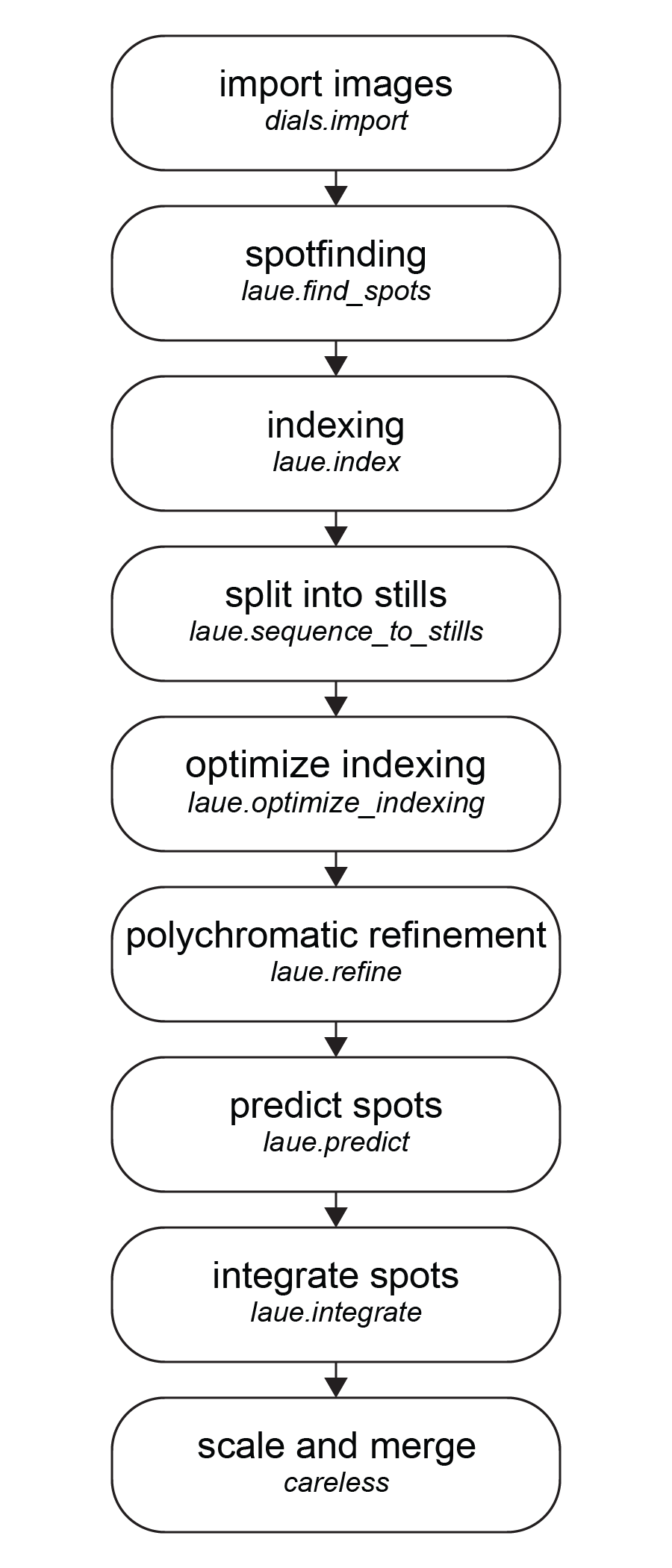07 Aug 2024
Laue-DIALS for Pink-Beam Crystallography
New Preprint for Laue-DIALS Software
Rick A. Hewitt
Introduction
Crystallography has often been limited to monochromatic light sources because of the complications a pink beam brings for data analysis. While some software, including PinkIndexer, Precognition, and the Daresbury Laue Suite can be used to analyze these data, we are lacking a modern, open-source package for polychromatic data analysis. Here we present a new package called Laue-DIALS which fills this gap. Polychromatic crystallography has characteristics that make it particularly apt for time-resolved experiments and can help to maximize signal with fewer images. It can also render partiality a non-issue by capturing full reflections on single still images. We hope that the use of the (free and open-source!) Laue-DIALS software will encourage and enable the use of polychromatic crystallography experiments. You can find the recently published preprint on bioRxiv!
 Full reflections from Laue pink-beam crystallography vs monochromatic stills and rotations from Hewitt et al. (CC-BY-NC license)
Full reflections from Laue pink-beam crystallography vs monochromatic stills and rotations from Hewitt et al. (CC-BY-NC license)
Laue-DIALS is currently able to handle single-crystal fixed-target datasets, with development to extend to serial crystallography rapidly underway! Laue-DIALS can be installed using pip after installing the DIALS diffraction analysis package.
Quick Tutorial
Laue-DIALS has a variety of tutorial notebooks. Each analysis in the preprint was performed with a notebook that can be found in the associated deposition on Zenodo. Experimental data are available from SBGrid. A routine data analysis pipeline is described by the following figure:
 Basic Laue-DIALS analysis pipeline from Hewitt et al. (CC-BY-NC license)
Basic Laue-DIALS analysis pipeline from Hewitt et al. (CC-BY-NC license)
There are also useful command-line utilities like laue.plot_wavelengths and laue.compute_rmsds, which are particularly useful as benchmark tools for quality after geometric refinement. The full Laue-DIALS command-line interface is described with all arguments in our online documentation. The nature of these programs also make them easy to apply to several passes of data via bash scripting (as seen in the deposition tutorials).
Get Involved!
As we mentioned: Laue-DIALS is fully open source! We’d love to get your participation as a user, and even as a contributor. Any bug reports or feature requests can be made on the Laue-DIALS Github Issues page. We look forward to seeing you there! If you would like to contribute source code or documentation, you can find guidelines at our online documentation.